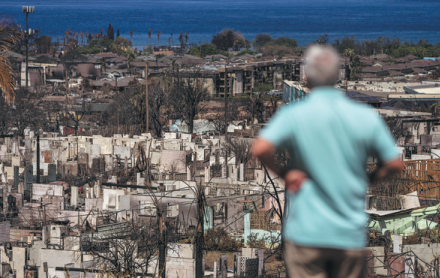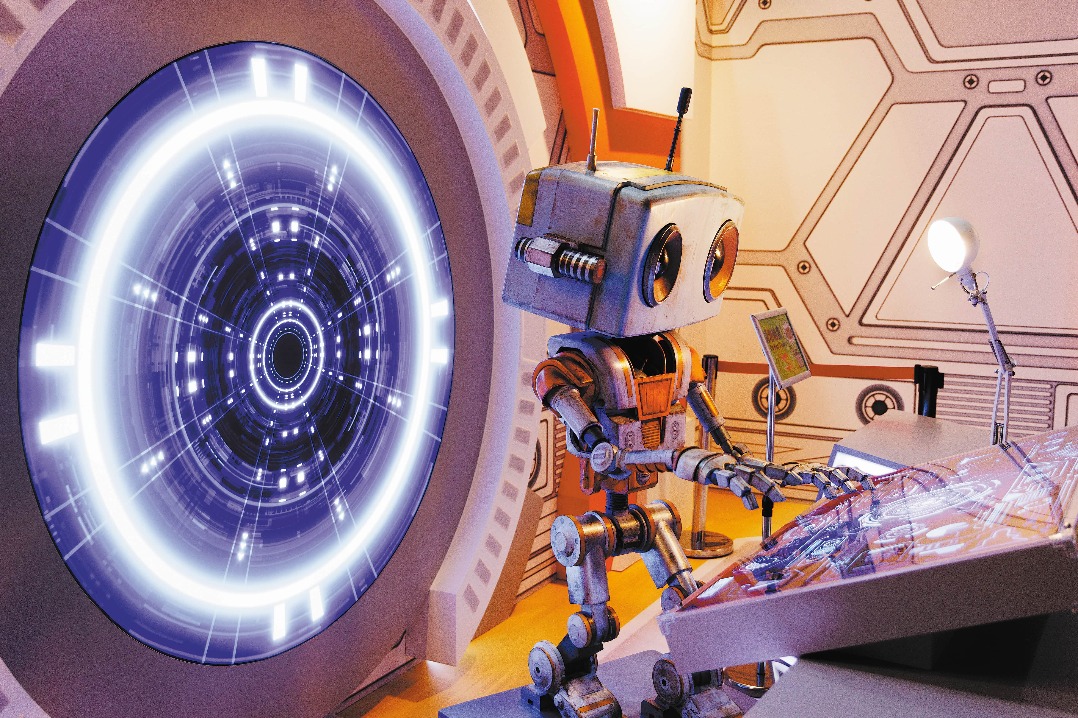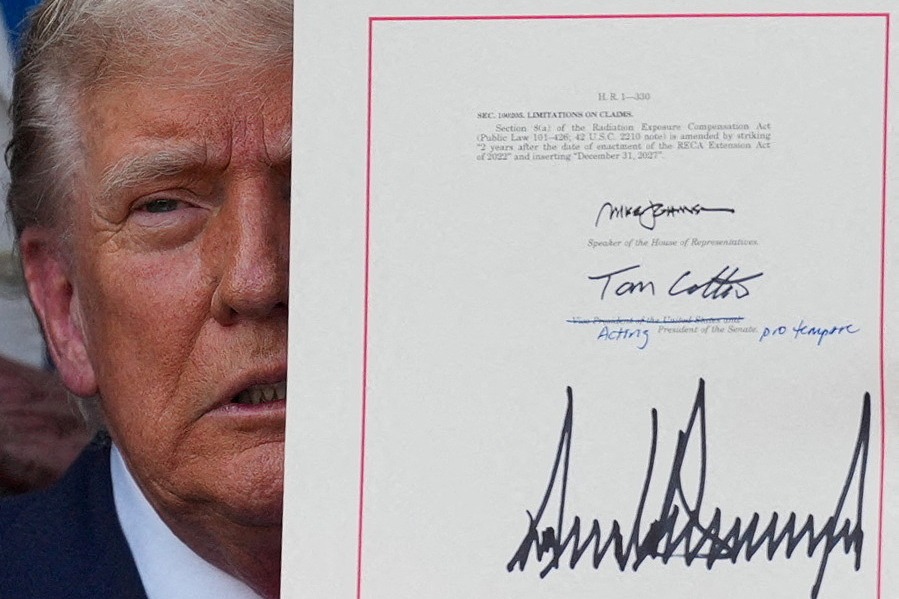Maui wildfire survivors face breathing issues, survey finds

HONOLULU — A University of Hawaii study examining the health effects of last year's deadly wildfires on Maui found that up to 74 percent of participants may have difficulty breathing and otherwise have poor respiratory health, and almost half showed signs of compromised lung function.
The data, gathered from 679 people in January and February, came from what researchers hope will be a long-term study of wildfire survivors lasting at least 10 years.
Researchers released early results from that research on Wednesday. They eventually hope to enroll 2,000 people to generate what they call a snapshot of the estimated 10,000 people affected by the fires.
Alika Maunakea, one of the researchers and a professor at the university's John A. Burns School of Medicine, said those who reported higher exposure to the wildfire tended to have more symptoms.
Many study participants had not seen a doctor, he said. Some study participants said they were not able to because clinics had burned down or because they prioritized getting housing, jobs and food after the disaster. Maunakea urged people exposed to the wildfires to get themselves checked.
"There might be some problems that might manifest in the future," he said. "Please see your doctor. Just pay more attention to your health."
Two-thirds of study participants lived in Lahaina at the time of the fires. About half reported daily or weekly exposure to smoke, ash or debris.
The Aug 8 blaze killed at least 101 people, making it the deadliest wildfire in the United States in more than a century. It burned thousands of buildings, displaced 12,000 residents and destroyed the historic town in Maui.
The report shows Maui does not have enough pulmonary health specialists, said Ruben Juarez, a professor of health economics at the university and one of the study's leaders.
Researchers are talking with Hawaii's congressional delegation to figure out how to bring these resources to Maui, he said.
Maunakea said researchers want to avoid the higher cancer and death rates experienced 20 years later by people affected by the 9/11 attacks.
"We'll hopefully be able to prevent this tragedy from compounding to higher mortality rates in the future, like we saw with other events like 9/11," Maunakea said.
Agencies via Xinhua

Today's Top News
- Chengdu games hailed as the new benchmark
- Xi, Lula pledge to deepen China-Brazil cooperation
- China, US reach deal to extend tariff suspension
- Demand for Nvidia’s H20 chip lackluster
- Washington not incarnation of justice: China Daily editorial
- Tariff truce gains time for talks although some tough issues remain to be resolved





























